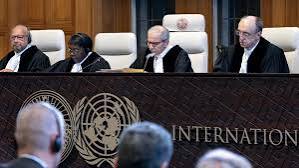Court declares Israeli occupation of Palestinian territories illegal
The International Court of Justice (ICJ) has declared Israel’s occupation of Palestinian territories as illegal under international law.
The advisory opinion, issued on July 19, 2024, calls for an immediate halt to Israeli settlement activities in the West Bank and East Jerusalem and demands the end of the occupation of Gaza.
The ICJ’s opinion, requested by the UN General Assembly, represents a significant moment in the long-standing conflict.
The court’s President, Nawaf Salam, emphasized that Israel’s presence in these territories is unlawful and must be terminated as swiftly as possible.
He also pointed out that Israel’s continued control over Gaza, despite its withdrawal in 2005, does not end the occupation.
The court further instructed Israel to evacuate its settlers from the West Bank and East Jerusalem and to provide reparations for damages inflicted upon Palestinians.
The ICJ highlighted that Israel’s approximately 160 settlements, home to about 700,000 Jews, violate international law. The court criticized these settlements as part of a broader policy of annexation and systemic discrimination.
Israeli Prime Minister Benjamin Netanyahu rejected the court’s findings, dismissing them as “lies” and asserting that Israel’s actions are justified. He reiterated Israel’s claim over Jerusalem and disputed the court’s conclusions on settlement legality.
READ ALSO: Dricus Du Plessis submits Israel Adesanya to retain UFC crown
The ruling has been celebrated by Palestinian leaders. Hussein Al Sheikh of the Palestine Liberation Organisation (PLO) hailed it as a “historic victory” for Palestinian rights and urged the international community to enforce the court’s opinion.
The advisory opinion will now be reviewed by the UN General Assembly, which may lead to resolutions that could influence future negotiations and the legal framework for resolving the conflict.
The ICJ’s decision comes amid ongoing legal challenges, including a separate case brought by South Africa accusing Israel of genocide in Gaza.
Follow the Neptune Prime channel on WhatsApp: https://whatsapp.com/channel/0029Va74ZvU2v1IqKByXoX3d
Do you have breaking news, interview request, opinion, suggestion, or want your event covered? Email us at neptuneprime2233@gmail.com


